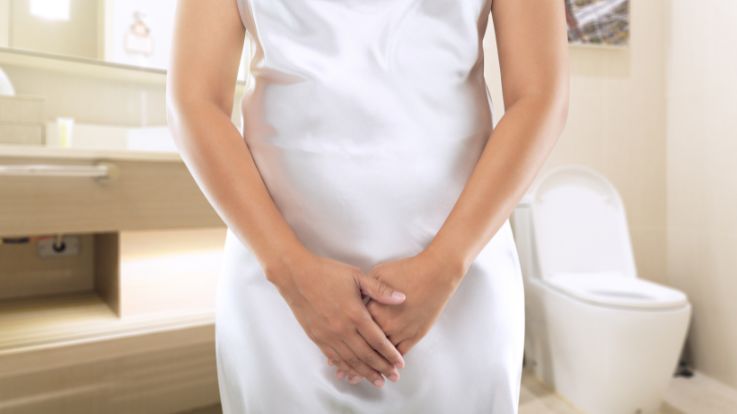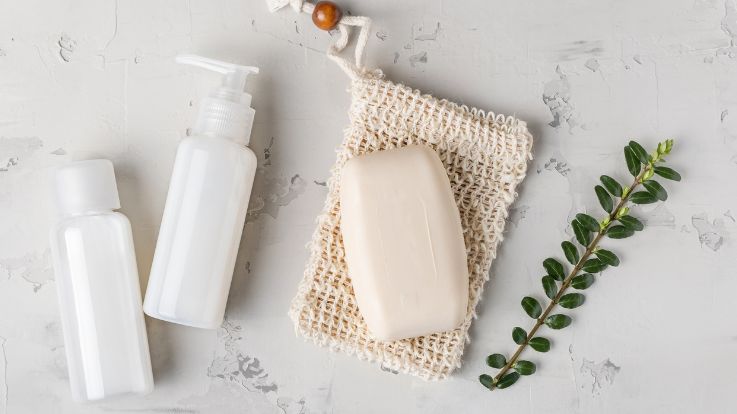How To Maintain Personal Hygiene During Pregnancy

Taking care of your private parts, especially during pregnancy is important, as hormonal changes and increased vaginal discharge can make you more prone to infections. In this blog, we will discuss the importance of hygiene during pregnancy, basic hygiene practices, safe methods for cleaning private parts, tips for different pregnancy stages, and postpartum hygiene.
Understanding Personal Hygiene During Pregnancy
Before talking about the importance of personal hygiene during pregnancy, it is important to define what it means for pregnant women. Personal hygiene refers to the practices that promote cleanliness and prevent the spread of germs and infections. Hygiene habits, such as regular handwashing, bathing, and oral care, help keep harmful bacteria at bay, reducing the risk of contracting illnesses or infections.

Defining Personal Hygiene for Pregnant Women
For pregnant women, personal hygiene extends beyond the usual routines. It involves paying extra attention to specific areas of the body, implementing healthy habits, and making informed choices regarding hygiene products. By adopting and maintaining good personal hygiene practices, you can safeguard your well-being and that of your unborn child.
During pregnancy, hormonal changes can lead to an increased production of oil in the skin, making it more prone to acne breakouts. It is important for you to cleanse your face gently with a mild cleanser to remove dirt and excess oil.
Using a moisturizer suitable for pregnancy can help keep the skin hydrated and prevent dryness.
Oral care is another important aspect of personal hygiene during pregnancy. Hormonal changes can cause gum inflammation and increase the risk of gum disease. You should brush your teeth twice a day with a soft-bristled toothbrush and fluoride toothpaste. Regular flossing and dental check-ups are also recommended to maintain good oral health.
Why Personal Hygiene Matters More in Pregnancy
Pregnancy brings about a number of hormonal and physiological changes in a woman's body, making it more susceptible to infections. This highlights the increased importance of personal hygiene during this period. By prioritizing personal hygiene, you can reduce the risk of various infections, such as urinary tract infections (UTIs), yeast infections, and skin conditions.
Urinary tract infections during pregnancy happen due to hormonal changes that affect the urinary system. To prevent UTIs, it is important to drink plenty of water, urinate frequently, and wipe from front to back after using the toilet. Maintaining good personal hygiene in the genital area is also essential to prevent the growth of harmful bacteria.
Yeast infections, caused by an overgrowth of yeast in the vagina, are also more prevalent during pregnancy. To minimize the risk, it is important to wear breathable cotton underwear, avoid douching or using scented feminine hygiene products, and change out of wet swimsuits or sweaty clothes promptly.
Basic Hygiene Practices for Pregnant Women
Adopting basic hygiene practices is important for maintaining cleanliness and preventing infections throughout your pregnancy. Here are some simple but effective habits to incorporate into your daily routine:
During pregnancy, your body goes through numerous changes, and it's important to prioritize your hygiene to ensure the well-being of both you and your baby. By following these hygiene practices, you can minimize the risk of infections and promote a healthy pregnancy.

Daily Hygiene Habits to Adopt
-
Keep the vaginal area clean and dry by gently washing with warm water and mild, fragrance-free soap. Avoid harsh cleansers that can disrupt the natural balance of the vaginal flora.
-
After urinating or having a bowel movement, always wipe from front to back to prevent the spread of bacteria from the anus to the vagina.
-
Change your underwear daily and opt for breathable fabrics like cotton to minimize moisture and promote air circulation.
-
Avoid using scented pads, tampons, or panty liners, as they can cause irritation and disrupt the vaginal pH balance.
-
Practice safe sex by using condoms to reduce the risk of sexually transmitted infections (STIs) that can harm both you and your baby.
-
Ensure that your hands are clean before touching the vaginal area to prevent the transfer of bacteria.
Maintaining Hygiene During Different Pregnancy Stages
Hygiene needs can change throughout the different stages of pregnancy. Let's explore some hygiene tips for each trimester:
First Trimester Hygiene Tips
During the first trimester, your body undergoes significant hormonal changes. It's important to:
-
Continue practicing good hygiene habits to prevent infections and discomfort.
-
Stay hydrated to maintain proper vaginal lubrication and promote overall health.
-
Listen to your body and rest when needed to reduce fatigue and ensure optimal well-being.
Also read: Your One-Stop Guide To The First Trimester
Second Trimester Hygiene Tips
The second trimester is referred to as the "honeymoon phase" of pregnancy. To maintain hygiene during this time:
-
Monitor your urinary habits closely. If you experience frequent urination, make sure to keep the genital area clean and dry to minimize the risk of urinary tract infections.
-
Continue practicing safe sex while regularly communicating with your partner and healthcare provider to ensure a healthy pregnancy.
-
Engage in light exercises approved by your healthcare provider to promote circulation and overall well-being.
Third Trimester Hygiene Tips
As you approach the final stage of pregnancy, it's important to address the following hygiene aspects:
-
Maintain proper hydration to manage the increased vaginal discharge that occurs during this time.
-
Practice good perineal hygiene to minimize the risk of infections and discomfort. Gently wash the perineal area with warm water and mild, unscented soap.
-
Use maternity pads to manage postpartum bleeding and change them regularly to maintain cleanliness.
Hygiene Products Safe for Pregnancy
While taking care of your hygiene, it's important to choose products that are safe for use during pregnancy. Opt for mild, fragrance-free soaps, unscented wipes, and hypoallergenic laundry detergents. These products minimize the risk of irritation and allergic reactions, promoting a healthy vaginal environment.
It's advisable to consult your Gynecologist for personalized recommendations, keeping in mind any specific sensitivities or allergies you might have. They can guide you in selecting the most suitable hygiene products that align with your unique needs.

Cleaning Private Parts: A Comprehensive Guide
Properly cleaning your private parts is important during pregnancy to maintain cleanliness and avoid infections. However, it's essential to do so safely and avoid any potential harm. Follow these safe methods for cleaning your private parts:
Safe Methods for Cleaning Private Parts
To clean your private parts safely during pregnancy:
-
Gently wash the external genital area using warm water and mild, unscented soap, making sure to rinse thoroughly.
-
Pat dry with a soft, clean towel. Avoid rubbing, as it can cause irritation and discomfort.
-
Avoid using douches or strong feminine hygiene products, as they can disrupt the natural pH balance and increase the risk of infections.
-
Avoid excessive scrubbing or using harsh cleaning tools, such as loofahs or rough washcloths, as they can cause irritation and damage the delicate skin of the vaginal area.
-
Wear loose-fitting underwear and clothing to allow proper air circulation and avoid trapping excess moisture, which can create a breeding ground for bacteria.
Products to Avoid When Cleaning Private Parts
While it's important to clean your private parts, some products should be avoided as they may cause harm or disrupt the natural balance of your vaginal flora. Avoid using:
-
Douches, as they can upset the natural pH balance and increase the risk of infections.
-
Fragranced soaps, bubble baths, and feminine hygiene sprays, as they can cause irritation and disturb the natural balance of the vaginal ecosystem.
-
Strong antiseptics or disinfectants that can disrupt the delicate balance of vaginal flora.
Postpartum Hygiene: What to Expect
After giving birth, your body goes through a healing process, and your hygiene routine may need adjustments. Here's what to consider:
Healing and Hygiene After Birth
Postpartum bleeding, also known as lochi. As part of your healing and hygiene routine:
-
Use maternity pads to absorb postpartum bleeding and change them as needed.
-
Gently clean the perineal area after every visit to the toilet using warm water and mild soap or a perineal bottle. Make sure to pat dry.
-
Avoid using tampons, as they can increase the risk of infection.
-
Listen to your body's needs and rest as much as possible during the postpartum period.
Also read: Is Vaginal Discharge During Pregnancy Normal
Resuming Regular Hygiene Practices Postpartum
As your body recovers, you can gradually resume your regular hygiene practices, but be mindful of any signs of infection or discomfort. Discuss any concerns or questions you may have with your doctor, who can provide personalized advice based on your specific situation.
Maintaining proper hygiene during pregnancy is important for your overall health and well-being. By understanding the importance of hygiene, adopting basic hygiene practices, safely cleaning your private parts, and addressing hygiene needs during different pregnancy stages and postpartum, you can enjoy a healthy and comfortable pregnancy journey.
How Hygiene Affects Fetal Development
The importance of personal hygiene during pregnancy extends to the well-being of the developing fetus as well. Poor hygiene practices can lead to infections that may pose risks to the baby's health. By prioritizing hygiene, you can reduce the likelihood of complications and foster a healthy environment for your growing baby.
One of the critical aspects of hygiene during pregnancy is ensuring a clean and safe food preparation environment. Consuming contaminated food can lead to foodborne illnesses, which can be harmful to both the mother and the baby. It is crucial to wash fruits and vegetables thoroughly, cook meat and eggs properly, and avoid consuming unpasteurized dairy products to minimize the risk of foodborne infections.
Maintaining a clean and hygienic living environment is important. Regularly cleaning and disinfecting surfaces, especially those frequently touched, can help prevent the spread of germs and reduce the risk of infections. It is also important to ensure proper ventilation and air circulation in the living space to minimize the accumulation of allergens and pollutants, which can negatively affect the respiratory health of both the mother and the baby.
Practicing safe sexual hygiene during pregnancy is important to prevent sexually transmitted infections (STIs) that can be harmful to the baby. Using barrier methods of contraception, such as condoms, can help reduce the risk of STIs and protect the health of both the mother and the developing fetus.

Key Areas of Personal Hygiene for Pregnant Women
Now that we understand the significance of personal hygiene during pregnancy, let's explore some key areas where you should focus your attention.
Oral Hygiene and Its Importance
Oral health is vital during pregnancy, as hormonal changes may increase the risk of gum disease and tooth decay. Regular brushing and flossing, along with routine dental check-ups, help maintain healthy teeth and gums. Remember, good oral hygiene not only benefits your dental health but also contributes to overall well-being.
Maintaining Skin Hygiene During Pregnancy
Due to hormonal changes, you may experience changes in your skin, such as increased oiliness, dryness, or sensitivity. Proper skincare, including cleansing and moisturizing, helps manage these changes and prevent skin irritations or infections. Additionally, using sunscreen can protect your skin from the harmful effects of the sun.
Hygiene in Diet and Nutrition
Eating a well-balanced diet is crucial throughout pregnancy. By following good food hygiene practices and avoiding foodborne illnesses, you can protect yourself and your baby. Wash fruits and vegetables thoroughly, cook food to the appropriate temperature, and avoid consuming unpasteurized dairy products or undercooked meats.
Hygiene-Related Concerns in Pregnancy
While personal hygiene is essential during pregnancy, there may be concerns that you encounter along the way. Let's address a couple of these concerns and provide tips on managing them without compromising on hygiene.
Dealing with Increased Sweating
As your body works hard to support the growing life inside you, it is natural to experience increased sweating. To cope with this, choose loose, breathable clothing, shower or bathe regularly, and consider using talcum powder or antiperspirants recommended for pregnant women.
Managing Hygiene with Morning Sickness
While morning sickness can be challenging to manage, it is crucial not to neglect your personal hygiene. Opt for mild, unscented products that do not trigger nausea. Freshen up with gentle toothpaste, mouthwash, and fragrance-free skincare products to maintain your hygiene routine during this time.
Tips for Improving Personal Hygiene During Pregnancy
Enhancing personal hygiene practices during pregnancy does not have to be overwhelming. Incorporating a few simple habits can go a long way in ensuring your well-being and that of your baby.
Daily Hygiene Habits to Adopt
Make personal hygiene a priority by establishing a routine that suits your needs. Remember to wash your hands thoroughly, especially before and after preparing food or using the restroom. Pay attention to regular bathing or showering, using mild cleansers suitable for your skin type.
Hygiene Products Safe for Pregnancy
When selecting hygiene products, it is important to choose ones that are safe for use during pregnancy. Opt for gentle and fragrance-free soaps, shampoos, and lotions. Always check labels or consult your healthcare provider to ensure the products you choose do not contain ingredients that may be harmful to you or your baby.
By prioritizing personal hygiene during pregnancy, you are taking proactive steps to safeguard your health and the well-being of your baby. Remember, even small adjustments and habits can have a significant impact. Embrace good hygiene practices, adopt a healthy lifestyle, and enjoy this beautiful phase of your life with confidence and peace of mind.
Be the first to support
Be the first to share
Comment (0)
Related Blogs & Vlogs
No related events found.
Loading more...